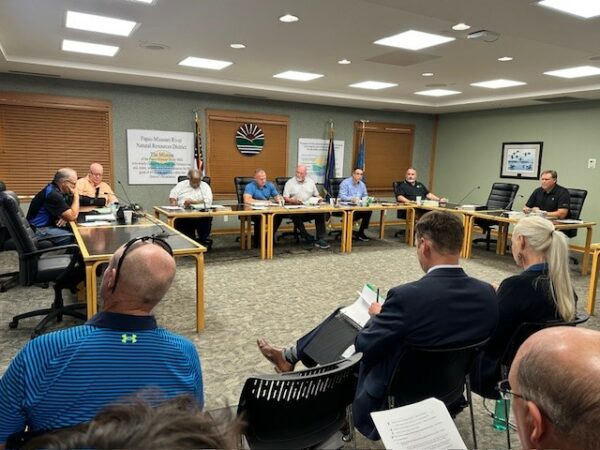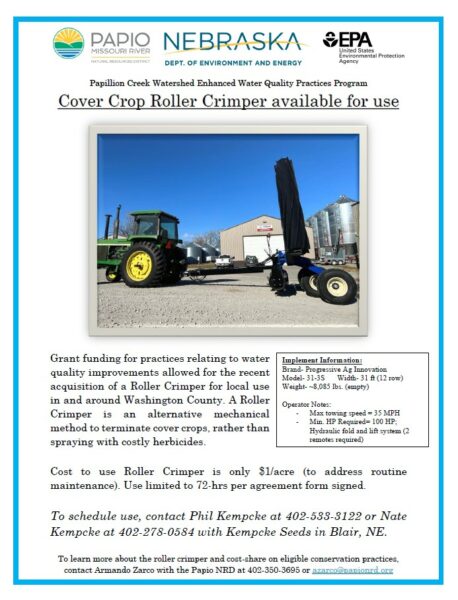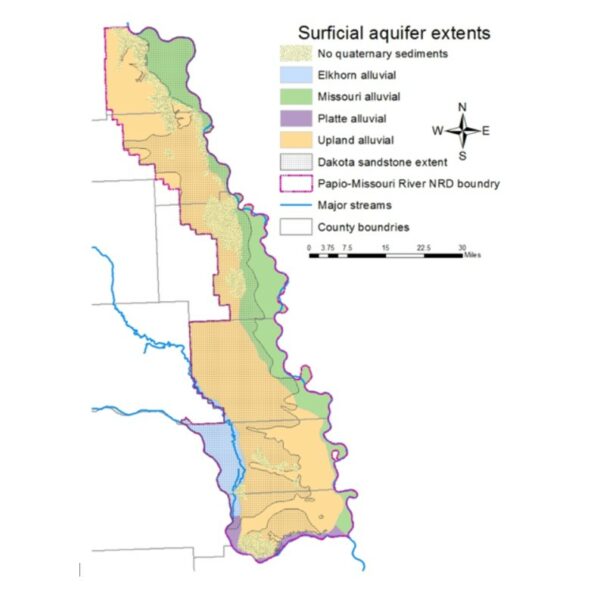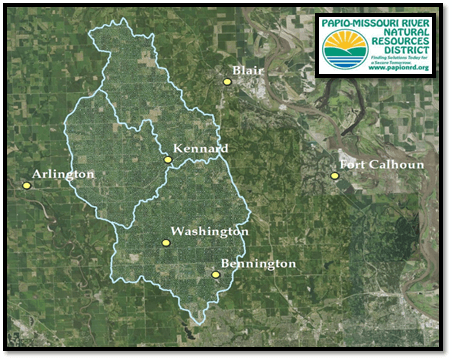At its September 12th meeting, the Papio-Missouri River Natural Resources District (Papio NRD) Board of Directors voted to approve the Fiscal Year 2025 general operating budget that includes a significant decrease in the Papio NRD property tax levy.

“Again, the District has prepared a budget that reduces the tax levy to its lowest in 25 years while funding the increasing need for additional flood mitigation, water quality, recreation opportunities, maintenance of aging infrastructure, and erosion control,” said Tim McCormick, chairman of the Papio NRD Board of Directors. “The system was tested by this past year’s record storms and worked as designed but is at its capacity. As our region develops, additional capacity is required to provide adequate flood mitigation. I commend the District’s ability to do so much while holding tax requests in check,” said McCormick.
For 19 out of 20 years, the Papio NRD has either decreased or kept the property tax levy the same. This fiscal year’s total tax request is 2.5% above last year’s budget. The District will drop its property tax mill levy by 5.61% this fiscal year.
“The Papio NRD clearly understands that high property valuation assessments and taxes are negatively impacting many of our constituents’ finances,” said John Winkler, general manager of the Papio NRD. “Through consistent, methodical and conservative financial and operational management, as well as, securing hundreds of millions of dollars in grant funding and cost shares over the last twenty years, this budget allows the Papio NRD to once again lower its property tax levy while simultaneously funding critical public safety projects and programs,” said Winkler.
Winkler says over the last five years the Papio NRD’s actual tax request increase has been below inflation and averaged five to ten percent below the average assessed valuation increase.
The Papio NRD’s FY25 property tax levy would drop to 0.029568 per $100 of assessed valuation from the District’s FY24 property tax levy of 0.031324 per $100 of assessed valuation. Under this budget, a homeowner in the District with property valued at $150,000 would pay $44.36 a year or $3.70 a month in property taxes next year to support Papio NRD projects, programs, and services. The budget calls for an estimated $31.5 million in revenue from the Papio NRD’s property tax levy. The total operating budget is estimated at $118.3 million.
The property tax levy is based on an estimated 8.6% increase in valuations across the District, which includes all of Sarpy, Douglas, Washington, and Dakota counties, plus the eastern 60% of Burt and Thurston counties.
The Papio NRD receives less than 2% of all property taxes collected within the District’s six-county area. The remaining 98% goes to schools, cities, counties, and other taxing entities.



 The Papio NRD has worked with the U.S. Geological Survey since 1992 to sample and test the groundwater from various aquifers throughout our District. Today, this sampling is performed bi-annually from dedicated monitoring wells owned by the NRD across our six-county area. Additionally, one of the four primary aquifers is selected each year and 20 to 25 samples are obtained (primarily from private domestic wells) and tested.
The Papio NRD has worked with the U.S. Geological Survey since 1992 to sample and test the groundwater from various aquifers throughout our District. Today, this sampling is performed bi-annually from dedicated monitoring wells owned by the NRD across our six-county area. Additionally, one of the four primary aquifers is selected each year and 20 to 25 samples are obtained (primarily from private domestic wells) and tested.